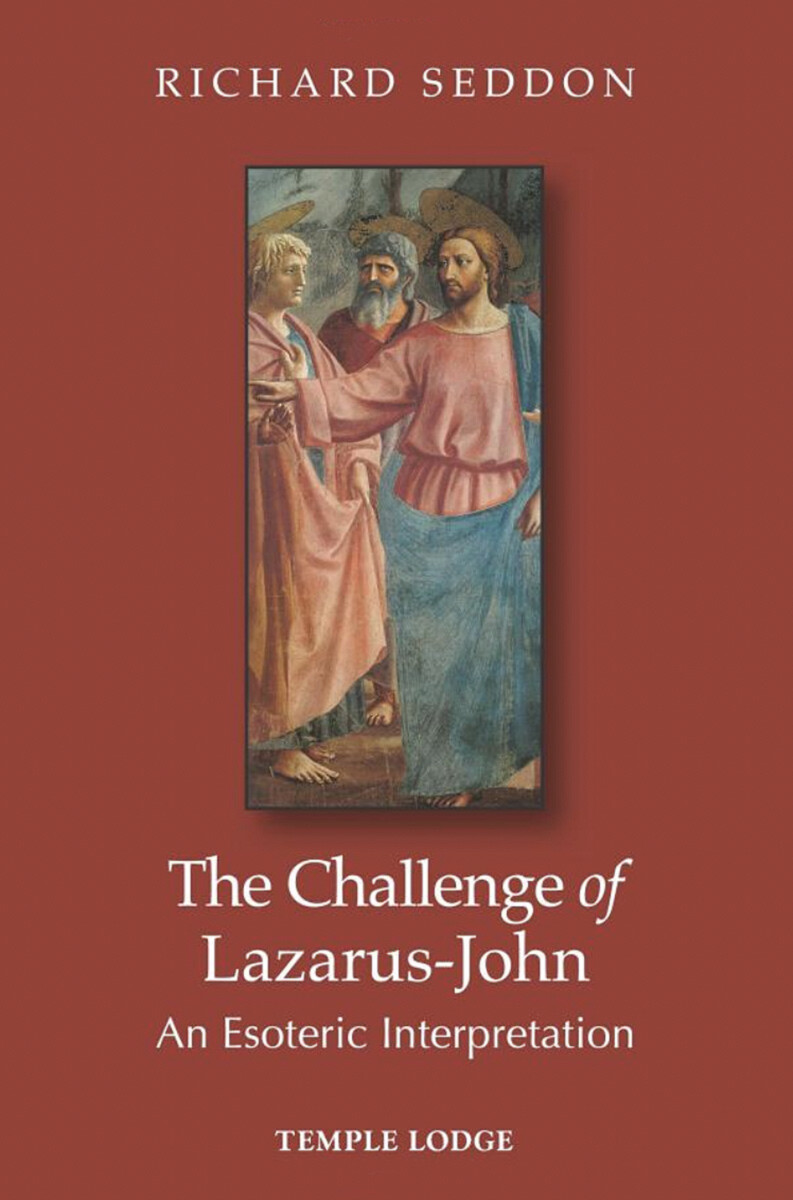The Challenge of Lazarus-John
An Esoteric Interpretation
- Publisher
Temple Lodge Publishing - Published
19th May 2015 - ISBN 9781906999728
- Language English
- Pages 158 pp.
- Size 6" x 9"
The Gospel of John (as distinct from the “synoptic gospels”) is the most esoteric and challenging account of the life, death and resurrection of Jesus Christ. John, whose identity has been much debated, mysteriously refers to himself as "the disciple whom Jesus loved.” However, didn't Jesus love each of the twelve Apostles? Indeed, did he not love all humankind? Nonetheless, the Gospel says that Jesus "loved him,” speaking only of Lazarus.
In this profound study, Richard Seddon brings together essential but often overlooked quotations from the work of Rudolf Steiner. Steiner made no claim to divine inspiration, but described how—through the vigorous discipline of inner development—the capacity for spiritual-scientific research could be acquired. Rudolf Steiner, who founded Anthroposophy, undertook research into many of the incidents recorded in John's Gospel, and reported his results in lectures given across Europe. In compiling Steiner's various statements, The Challenge of Lazarus–John reveals that John's Gospel not only gives a historical account, but also represents a path of personal development or initiation.
After the prelude describing Creation, the Gospel describes how the Christ-being descended into the physical and spiritual constitution of Jesus of Nazareth during the Baptism in Jordan. Crossing the threshold between physical and spiritual worlds, the Gospel writer emphasizes the development of the higher self in freedom, the rebirth of the soul, and the raising of Lazarus. An interlude considers the significance of the seven events called “signs” and the seven “I AM” statements in connection with higher stages of knowledge.
The remainder of the Gospel is seen as an expression of the seven stages of Rosicrucian–Christian initiation and their reformulation in the process of human evolution as described in anthroposophic teaching. This culminates in an examination of the spiritual processes in the constitution of Jesus during the Crucifixion and Resurrection. It is Lazarus–John's personal observation of those events that enabled him to write his unique Gospel.
Gathering such insights and interpretations, Seddon has produced a comprehensive book that supplements existing biblical commentaries and illumines John's enigmatic Gospel as a truly Christian path of modern initiation—a challenge to all human beings that will endure for millennia to come.
C O N T E N T S:
Preface
Introduction
PART ONE
Prelude
The Baptist’s Witness
Christ Permeates Jesus
Birth from Above
Awakening the “I”
The New Will
Cosmic Nourishment
At the Abyss
The “I” Confronts Opposition
The Eternal “I”
The Lesser Mysteries
Initiation of Lazarus
Last Days
Interlude
PART TWO
The Last Supper
The Last Discourse
The Divine Prayer
The Arraignment
Golgotha
The Resurrection
Epilogue
Richard Seddon
Richard Seddon studied moral sciences (philosophy, ethics, logic and psychology) with Bertrand Russell and John Wisdom—an advocate and colleague of Ludwig Wittgenstein—at Cambridge. He spent his working life as a personnel manager. A student of anthroposophy for seven decades, he is the author of several books.


